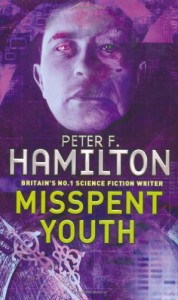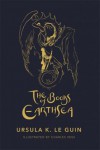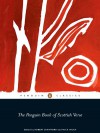100
Followers
65
Following
Arbie's Unoriginally Titled Book Blog
It's a blog! Mainly of book reviews.
Currently reading
Station Zero
Progress:
220/282 pages
The Books of Earthsea: The Complete Illustrated Edition
Progress:
749/997 pages
The Penguin Book of Russian Poetry
The Uncertain Land and Other Poems
Progress:
8/160 pages
The Heptameron (Penguin Classics)
Progress:
152/544 pages
The Poems and Plays of John Masefield
Progress:
78/534 pages
Poems Selected
Progress:
4/50 pages
Selected Poems
Progress:
18/160 pages
The Penguin Book of Scottish Verse
Hainish Novels & Stories, Vol. 2
Progress:
133/789 pages
 A commonplace of recent "hard" SF is the idea of very long lifespans and rejuvenation of the body. Hamilton has used it himself in his space-opera series. Here he decides to make it the focus of a stand-alone novel, examining the impact on the very first recipient and his family.
A commonplace of recent "hard" SF is the idea of very long lifespans and rejuvenation of the body. Hamilton has used it himself in his space-opera series. Here he decides to make it the focus of a stand-alone novel, examining the impact on the very first recipient and his family.My usual complaint about Hamilton is that his stories have no subtext at all but that cannot be said of this novel of loose morals and really bad behaviour. Unfortunately the message seems rather underwhelming; if you behaved badly when you were twenty and you suddenly go from being 70 to being twenty again - you'll behave badly again. The type of behaviour is not unrealistic in that similar disasters do occur in step-families.
The characters spend so much time having sex that it gets tedious but there are some other things going on; one is a theme of a Federal Europe that has become a target of multiple terrorist seperatist groups from various formerly independent states. The society is shown as repressive and only nominally democratic. This could be merely a projection of current European trends for the sake of background and plot but it feels more like a Dystopian Warning.
These days when an SF novel focuses centrally on a Major Medical Breakthrough I expect that near the end it will unravel, either killing the recipient or leaving him exactly where he started. These seem like just a Deus Ex Machina that allows the author to quit once bored and the predictability is greatly detrimental to the overall impact of the book. This one is not an exception.










